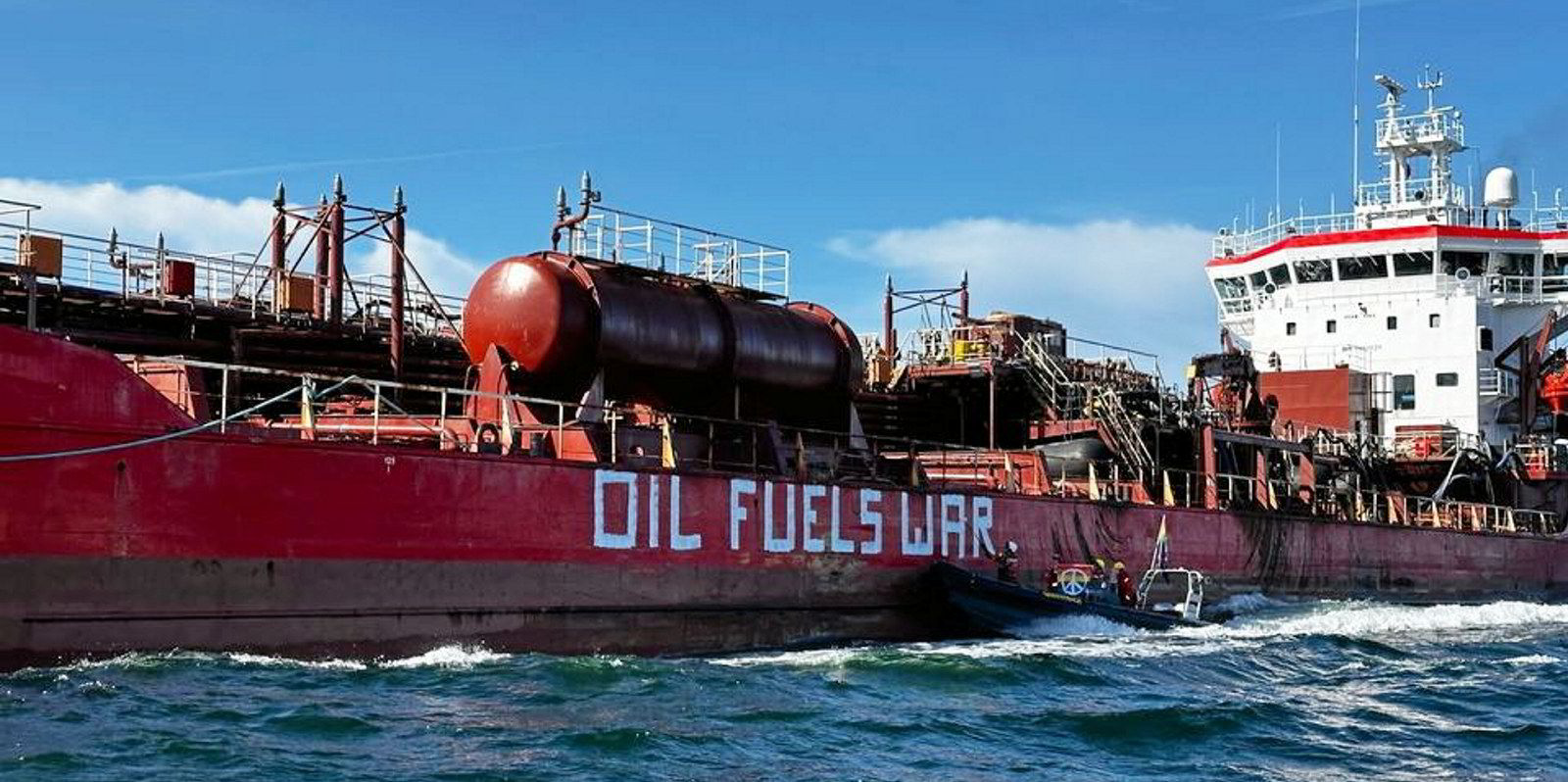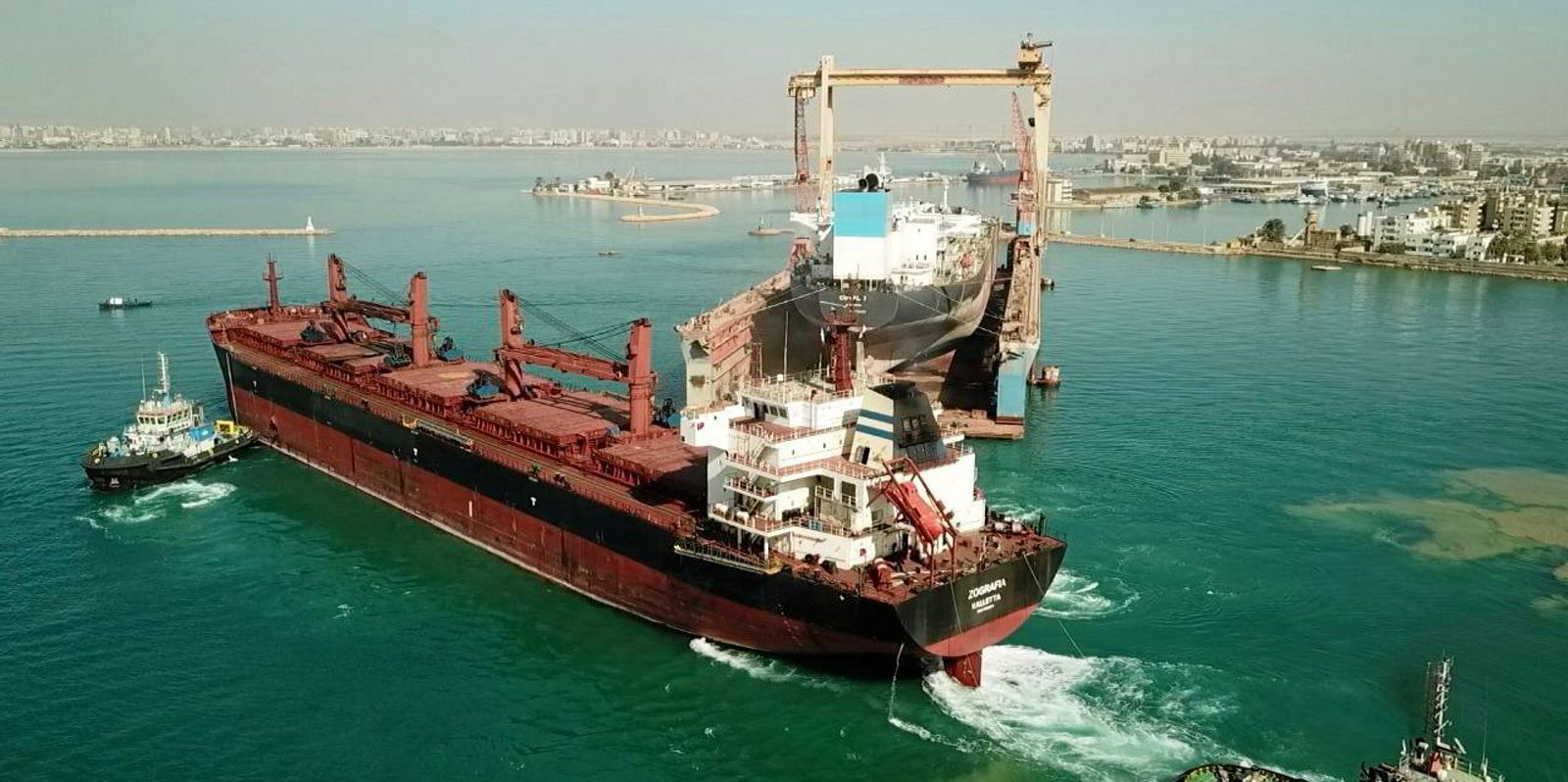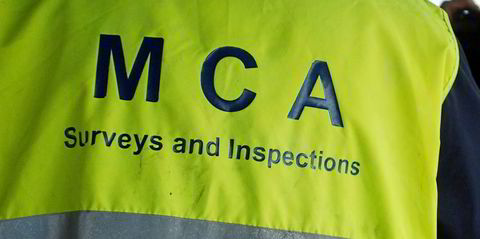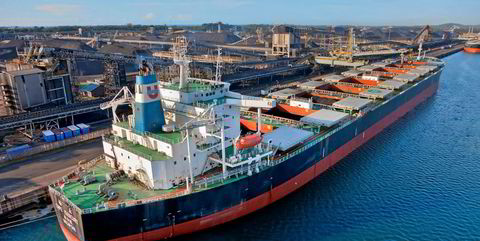An Estonian bunker tanker has been targeted by environmental activists off Sweden for its alleged role in supporting Russian oil exports.
Protesters from Greenpeace headed out to the 8,100-dwt Zircone (built 1993) off Gotland in international waters in the Baltic in small boats on Friday morning.
They painted both sides of the 125-metre ship’s hull with the slogans “Oil fuels war” and “People want peace”.
Greenpeace stressed the protest was peaceful and was carried out by experienced activists and mariners “with the highest priority on safety”.
Before the group approached the Zircone, the crew was contacted by radio in both Russian and English to clarify what they intended to do and why.
The Equasis database lists the owner and operator as Welton Enterprises of Estonia, which could not be contacted.
Greenpeace said it was concerned that the Cyprus-flagged vessel could trigger an environmental disaster in the fragile Baltic Sea ecosystem.
“Every day, the rusty tankers of the Russian shadow fleet ship enormous amounts of Russian oil through the Baltic Sea, and pose a serious threat to our seas and coastlines,” said Erika Bjureby, head of Greenpeace in Sweden.
“Maritime experts believe that it is only a matter of time before an accident happens. We now demand that the Swedish government stop allowing the shadow fleet to be refuelled off Sweden’s coast, and thus remove the infrastructure that currently facilitates Russia’s oil exports that finance the war in Ukraine,” she added.
‘Must stop’
Rolf Lindahl, a spokesperson for energy issues at Greenpeace who took part in the protest, said: “That Zircone can only be located here outside Gotland and support Russian oil exports is scandalous and something that our politicians and authorities must stop.”
In March, it emerged that Denmark was investigating a collision involving a shadow fleet tanker en route to load Russian crude.
The accident involving the 116,000-dwt Andromeda Star (built 2009), of unknown ownership, took place on 2 March, the Danish Maritime Authority said in a statement to Bloomberg.
The incident remains under investigation, but no further details were given.
The Panana-flagged aframax had been due to load Russian Urals crude on 4 March at the port of Primorsk in the Baltic Sea, according to shipping data.
Instead, the ship headed to a Danish repair yard in Lindoe, arriving on 17 March.
The tanker had left Vadinar in India early in February.
Danish pilots have also claimed many of these old tankers have refused pilot help in transiting the Baltic.





